Heatstroke Claims Lives of Seven Iranian Hajj Pilgrims
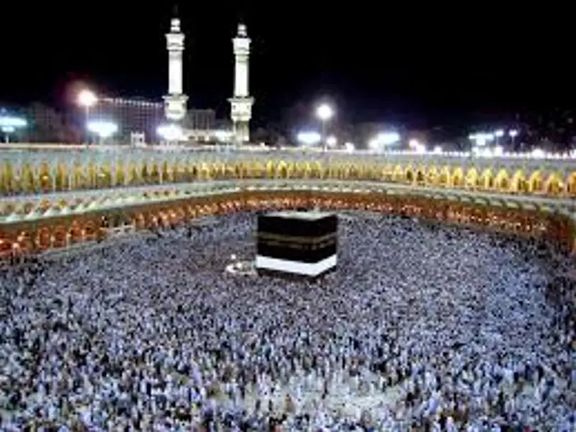
Iran's Red Crescent Society has confirmed the deaths of seven Iranians during this year's Hajj pilgrimage in Mecca due to “heatstroke” and “pre-existing health conditions”.

Iran's Red Crescent Society has confirmed the deaths of seven Iranians during this year's Hajj pilgrimage in Mecca due to “heatstroke” and “pre-existing health conditions”.
This year's total death toll reached 19 with temperatures forecast to reach a peak of 47 degrees.
The intense heat has had a significant impact, especially during the critical Hajj ritual of 'stoning the Devil', a period marked by several of the reported deaths.
Each year, the Hajj pilgrimage attracts approximately 1.8 million Muslims to the holy city of Mecca in Saudi Arabia.
According to Saudi's health ministry spokesman, Mohammed Al-Abdulaali, more than 2,760 pilgrims suffered from sunstroke and heat stress on Sunday alone.
In response to the annual deaths which plague the pilgrimage, Saudi authorities have introduced a variety of precautions including climate-controlled facilities and comprehensive medical support to address the health risks posed by the heat.
Last year, deaths reached as many as 240 with temperatures around 48 degrees.
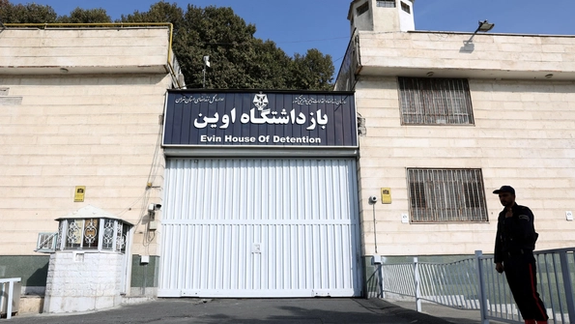
Inmates in Ward Four of Tehran’s notorious Evin Prison are suffering from severe overcrowding, abysmal hygiene, and hunger, according to a human rights monitoring group.
The US-based Human Rights Activists News Agency (HRANA) has detailed the conditions in which these prisoners live, most of whom are political detainees, in a report published on Friday.
Here is an in-depth report on the prison, compiling data from previous reports and HRANA's findings on Ward 4.
Evin Prison's Profile
The Evin prison is Iran's largest facility for detained political prisoners, some charged with crimes related to national security. Over the years, it has garnered international attention and criticism for its wrongful treatment of prisoners and human rights violations. In response to allegations of abuse and misconduct, both the US and the EU have imposed sanctions on Evin prison, underscoring the need for reforms within Iran's penal system.
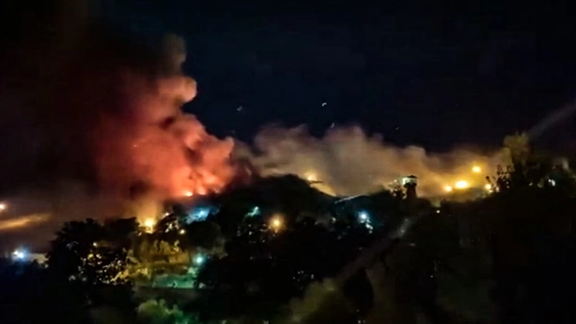
An incident that intensified attention, particularly, was a fire that broke out in Evin prison in October 2022 amid the nationwide Woman Life Freedom protests. Official records indicate eight prisoner fatalities and 61 injuries.
While Iranian authorities attributed the fire to prisoners, evidence collected by Amnesty International raised significant concerns that the authorities exploited the situation to justify a violent crackdown on prisoners under the pretext of firefighting and preventing escapes.
Another notable event occurred in 2021 when a hacktivist group breached Evin prison's security cameras. The footage obtained by Edalat-e Ali from these hacked CCTV cameras revealed numerous abuses, including overcrowding, inhumane cell conditions, and instances of guards and other inmates assaulting prisoners.
Overcrowding and Hygiene Concerns
Evin prison has four halls in its ward four. Originally designed to house 120 individuals, halls 3 and 4 now find themselves overcrowded with more than 300 inmates. This overcrowding has led to cramped sleeping arrangements and heightened hygiene concerns. With inadequate space and minimal facilities, many prisoners are forced to sleep on the floor, resulting in an alarming increase in the prevalence of bed bugs and other diseases within the prison environment.
In May, Mehdi Mahmoudian, a political activist with over eleven arrests and eight years of imprisonment, reported on X that Taleghani Hospital in Tehran ceased admitting dialysis patients from Evin due to bedbug contamination.
The activist stated that the hospital provided a sample canister of bedbugs to Evin's medical department head as evidence.
Earlier, Zia Nabavi, a student activist and political detainee, described the harsh effects of the infestation, such as sleep deprivation, before being transferred to solitary confinement.
Prison Store and Food Quality
Furthermore, the quality of prison food has come under scrutiny, with reports of physical ailments among inmates due to poor nutrition.
Many prisoners have experienced weight loss, joint pain, and difficulties concentrating, attributing these health issues to the substandard quality of the government-provided meals.
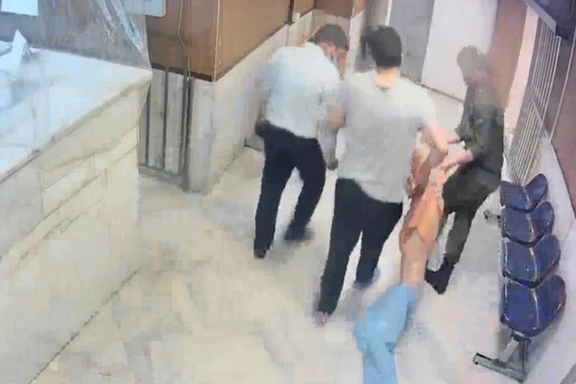
Additionally, the exorbitant prices at the prison store have made it difficult for some inmates to afford basic necessities, exacerbating their financial strain.
Recently, reports emerged that Mohammad Nourizad, a prominent writer, filmmaker, and political detainee, was transferred to solitary confinement following his protest against the escalating food prices in prison, as disclosed by his wife.
Fatemeh Maleki, in an audio clip circulating on social media, revealed that Nourizad's objections to the rising prison food expenses in the past two months prompted his solitary confinement.
Drug Related Issues
According to HRANA's report, the ongoing prevalence of drugs poses a substantial threat to the welfare of the incarcerated community.
This aligns with the statement made in May by Iran's anti-narcotics police chief, who asserted that roughly half of the country's prisoners are implicated in drug-related activities.
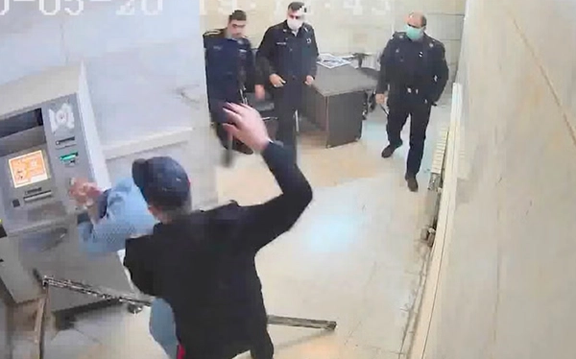
In 2020, Iran Wire reported the distribution of inexpensive, mass-produced narcotics within prisons. Activists like Leila Hosseinzadeh, now released, highlighted the prevalent practice of systematically drugging prisoners. Describing an incident, she recounted how, following a brawl between two inmates, one was forcibly administered a pill to silence them for several days.
Living Conditions and Protests
The dire living conditions within ward four have prompted protests among the incarcerated population. Despite repeated appeals and requests for intervention, prison officials have thus far neglected to address these grievances adequately. The overcrowding and unsanitary living conditions have significantly impacted the physical and mental well-being of the inmates, fueling their frustration and dissatisfaction.
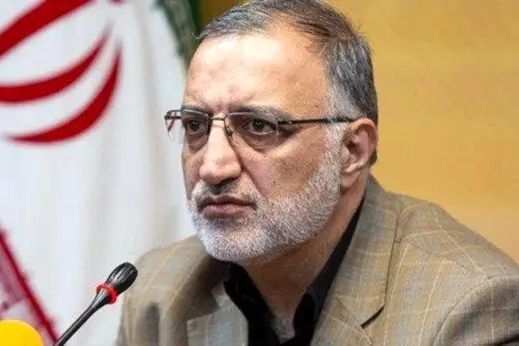
Iran’s former Foreign Minister has responded to criticism of allegations of secrecy surrounding the 2015 nuclear deal amid the presidential race war of words.
Presidential candidate Alireza Zakani accused Mohammad Javad Zarif, along with former President Hassan Rouhani and former Parliament Speaker Ali Larijani, of “clandestinely” handling the Joint Comprehensive Plan of Action (JCPOA) document.
Zakani claimed that the trio withheld the JCPOA from other vital Iranian officials, including then-Secretary of the Supreme National Security Council, Admiral Ali Shamkhani, and the special advisor to the Supreme Leader, Ali Akbar Velayati, under "utmost confidentiality."
The response from Zarif's office denounced Zakani's claims as “baseless”, highlighting that the JCPOA text and its Persian translation were publicly posted on the Ministry of Foreign Affairs' official website immediately after the deal's conclusion, debunking the notion of secrecy.
Furthermore, Zarif’s office also defended the JCPOA's “legitimacy”, noting its ratification by various Iranian governmental bodies and its alignment with the will of the Islamic regime, as recognized by the Supreme Leader.
The Joint Comprehensive Plan of Action (JCPOA), commonly referred to as the Iran nuclear deal, was a landmark agreement reached in July 2015 between Iran and the P5+1 group, comprising the United States, United Kingdom, France, Russia, China, and Germany.
The core objective of the JCPOA was to curb Iran's nuclear capabilities to ensure they remained strictly for peaceful purposes, in exchange for lifting economic sanctions that had impacted Iran's economy. Under the agreement, Iran agreed to reduce its stockpile of uranium, limit its level of uranium enrichment, and decrease the number of its centrifuges in return for relief from sanctions.
However, the US withdrew from the accord in 2018 under President Donald Trump, which led to the re-imposition of US sanctions. Since then, Iran's uranium enrichment has reached levels which the UN's nuclear chief says allows Iran to be "weeks not months" away from a nuclear weapon.
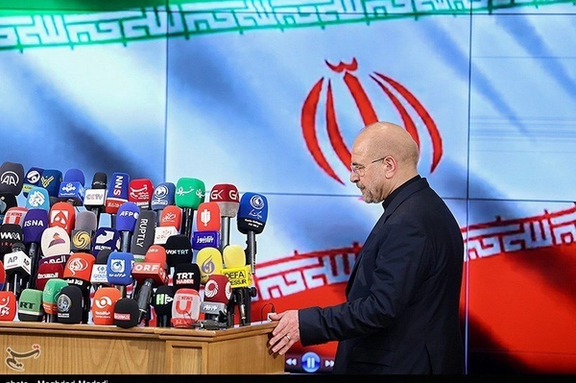
Iranian presidential candidate and parliament speaker Mohammad Bagher Ghalibaf urged other conservative contenders to step down in his favor before the June 28 snap election.
Citing his "greater readiness," Ghalibaf called for “unity” among the five conservative candidates in a TV address Sunday.
He stated on state TV, "I am among those who reminded my campaign staff of two points yesterday: first, to maintain ethics, and second, that the ‘Revolution Front’ must rally behind one candidate before June 28. There is certainly rationality, selflessness, and kindness within the Revolution Front."
With five of the six candidates coming from the conservative ranks, there is little choice for Iran when it goes to the polls later this month following the sudden death of former president Ebrahim Raisi.
As Iran endures its worst economic crisis since the founding of the Islamic Republic and sees the biggest challenge to government legitimacy in its history, he presented himself as the leading candidate. "I stepped forward after the death of Ebrahim Raisi because the country is at a critical juncture, and I felt I was more prepared than the others," he said.
Raisi and his entourage lost their lives in a helicopter crash in East Azarbaijan province on May 19, triggering this month's snap elections which are expected to see a record low turnout.
Also on Sunday, Mahmoud Nabavian, a member of parliament and a prominent member of the ultraconservative Paydari Front dismissed reports of Saeed Jalili withdrawing from the presidential race as "electoral lies" and labeled their dissemination as "a religious sin."
Nabavian asserted, "As someone who is part of his campaign and accompanies him, I completely deny this claim."
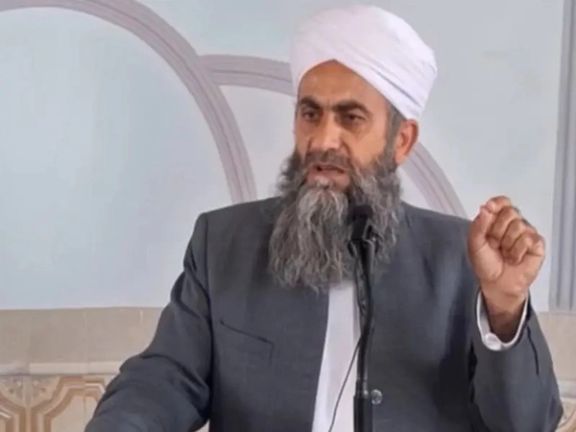
Sunni cleric Mowlavi Abdulahad Parsa has been removed from his position as leader of Friday prayers as the Iranian government continues to oppress the Sunni community.
The decision, issued in absentia by the Special Clergy Court of Mashhad, also bans Mowlavi Parsa from delivering speeches within the province, according to rights group Haalvsh’s report on Saturday.
Security agencies have threatened the residents of Taghan village with severe consequences if they protest the decree or support Parsa. A source told the rights group that security agencies also threatened the residents that they would be deprived of all government services and allocation of construction funds to the village.
Parsa was previously arrested and interrogated for a week in October 2022 amid the nationwide uprising in which his sermons addressed government cruelty.
He especially spoke out against Zahedan’s brutal Bloody Friday massacre when security forces opened fire on peaceful protestors on 30 September 2022, killing over 100 people. Security forces fired shots at protestors from rooftops near the Grand Mosalla prayer hall and the Makki Mosque, Zahedan's main Sunni mosque.
The cleric also supported the stance of the famed preacher, Mowlavi Abdolhamid, a prominent Sunni cleric and outspoken critic of the Iranian government, who serves as the Sunni Friday prayer Imam in Zahedan, the provincial capital of Sistan-Baluchestan.
Sunni clerics have continued to endure legal harassment in the wake of the protests as the Shia government continues to suppress the minority which constitutes around 10 percent of Iran's population.
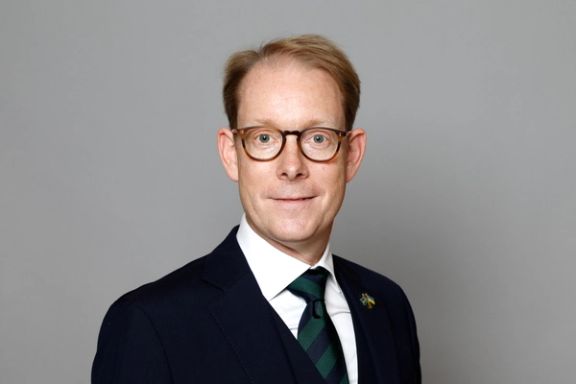
Sweden's Minister of Foreign Affairs, Tobias Billstrom, has publicly acknowledged a significant oversight in travel advisories concerning Iran, following the recent controversial prisoner swap deal with Tehran.
Sweden's Minister of Foreign Affairs has publicly acknowledged a significant oversight in travel advisories concerning Iran, following the recent controversial prisoner swap deal between Iran and Sweden.
The exchange involved a convicted war criminal, Hamid Nouri, who was serving a life sentence in Sweden for his role in the 1988 mass execution of prisoners serving their sentences in Iran, released in exchange for Swedish EU diplomat Johan Floderus and Swedish-Iranian citizen Saeid Azizi.
"A travel advisory to Iran was not in place when Johan Floderus went there," Billstrom admitted in a statement released on the platform X on Sunday.
"A decision to advise against all non-essential travel to Iran was made only on April 28, 2022, which was eleven days after Johan Floderus was detained in Iran. Subsequently, on June 23, 2022, a broader advisory against all travel to Iran was issued," Billstrom added.
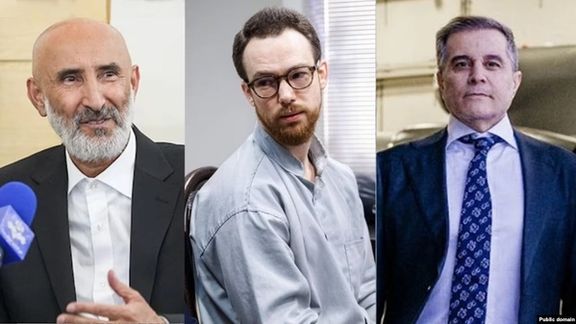
This admission highlights a critical lapse in Sweden's official guidance, particularly concerning the safety and security of its citizens traveling to Iran. The error was especially costly in light of the detention of Swedish dual nationals in Iran in previous years including the arbitrary arrest of Ahmadreza Djalili’s in 2016, who was also left out of the prisoner swap deal.
Djalili was arrested in 2016 while visiting Iran as a scholar and accused of espionage. He was later tried on trumped-up charges and sentenced to death, without due process of law.
This oversight has raised broader questions about the Swedish authorities' negligence, as they delayed issuing a warning against all travel to Iran until June 2023, despite clear threats from Iranian officials in May 2022 in retaliation for Nouri’s trial in Sweden. On May 19, 2022, Amnesty International issued a public statement warning of Iran's threats to execute Ahmadreza Djalali in response to Hamid Nouri's prosecution.
Most Western countries have strict travel warnings for their citizens urging them not to visit Iran, which has routinely arrested ordinary travelers and held them as de fact hostages to force Western countries to make concessions.
Amnesty International highlighted in its statement, “State media articles published on May 4, 2022, provide further evidence that the Iranian authorities are using Ahmadreza Jalali’s life as a bargaining chip to pervert the course of justice in Sweden and compel Swedish authorities to release Hamid Nouri.”
Yet, Sweden failed to issue a warning to its citizens until it was too late. Johan Floderus, an individual working for the Swedish foreign service decided for personal reasons to visit Iran and was arrested by the notorious intelligence organization of the Revolutionary Guard.